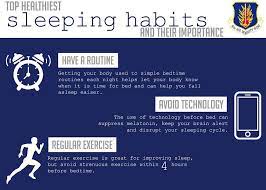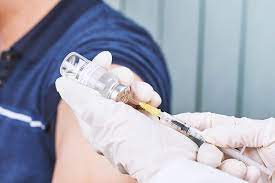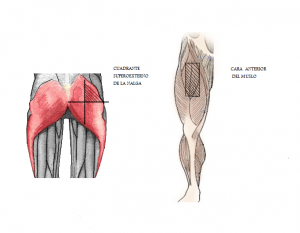Human Growth Hormone Deficiency Impact On Sleeping Habits
How Does Human Growth Hormone Deficiency Impact Sleeping Habits: A Clinical Study
Researchers have long been aware that HGH Deficiency is strongly correlated with an increased incidence of sleeping problems. In recent years, more time and effort have gone into exploring that correlation.
How Were Patients Selected for this HGH Sleep Study?
One study, published in 2010, analyzed thirty patients with Abnormally Low Growth Hormone Levels from four different University medical centers: the University of Pisa, Italy, the University of Liege in Belgium, and the Free University of Brussels, and the University of Chicago.
Patients were diagnosed with Human Growth Hormone Deficiency using a method known as the Insulin Tolerance Test. Patients were selected for this study if they showed less than three micrograms per liter after drinking Glucose Solution.
Twenty-four of the patients suffered from Adult-Onset Hypopituitarism, while six were diagnosed early in life with Childhood-Onset Hypopituitarism.
Patients that were selected for the study had not taken Bio-Identical HGH Injections for a minimum of six months before they were selected, and some participants had never used Bio-Identical Human Growth Hormone Injections.
Subjects were screened for a number of conditions. They were turned away if they showed signs of Diabetes, Hyperprolactinemia, Psychiatric/Neurological Disease, chronic infection, heart problems, kidney problems, liver disease, or drug/alcohol abuse.
Also, patients that had traveled three time zones or more in the previous two weeks were excluded, as were people that were shift workers in the prior three months. Finally, participants had to be off sleeping medications for a minimum of 90 days.
Adult-Onset HGH Deficiency Causes
The source of Hypogonadism varied from patient to patient. In twelve of the thirty patients, Adult-Onset Hypopituitarism resulted from a pituitary issue that did not involve other parts of the endocrine system.
Ten patients had their pituitary removed via surgery. One patient experienced the death of a pituitary tumor that suppressed HGH Levels, and one patient suffered from the same issue but the stalk of the pituitary. None of these patients suffered from Diabetes Insipidus.
The second group of patients had pituitary issues that could have been partially the result of hypothalamic insufficiency. Two patients had a tumor removed from the pituitary and suffered from Diabetes Insipidus.
One patient received radiation therapy to remove a pituitary tumor. Two patients experienced HGH Deficiency as a result of Craniopharyngioma.
One patient had a pituitary tumor break down while also suffering from Diabetes Insipidus. Two patients had lesions of the hypothalamus and the pituitary, resulting from histiocytosis and neurosarcoidosis, respectively.
Childhood-Onset HGH Deficiency Causes
In the Childhood-Onset Hypopituitarism group, six of the ten patients experienced their deficiency due to a known genetic predisposition to HGH Deficiency. One patient suffered from Hypothalamic Insufficiency that led to HGH Deficiency.
Three others suffered hypopituitarism resulting from the appearance or removal of tumors from the Pineal Gland, the Olfactory Duct, and a Brain Tumor. Finally, the tenth participant suffered from HGH Deficiency resulting from Brain Thrombosis.
More HGH Patient Information
Among the thirty patients, 28 had received Bio-Identical Hormone Deficiency Treatment in the past for their Pituitary Insufficiency. There were 24 male patients and 6 female patients in the study. Each female HGH Deficiency subject was taking Estrogen Replacement Therapy, with 4 of those 6 taking progesterone as well.
Sixteen of the patients were simultaneously suffering from Testosterone Deficiency and were either replacing their Testosterone with Intramuscular Testosterone Injections or Topical Testosterone Products.
Twenty-one patients were taking Thyroxine for Thyroid Deficiency, and twenty-four were taking cortisone acetate or hydrocortisone for adrenal hormone deficiency. Finally, seven patients were taking desmopressin.
HGH Deficiency: Experimental vs. Control
Every patient in this Hypopituitarism Sleep Study had their own personal control with normal HGH Levels. Experimental Group Patients averaged around 72 micrograms per deciliter, whereas control patients had an average of 194 micrograms per deciliter.
All experimental patients had normal levels of potassium, sodium, and glucose. Overall, patients had Thyroxine Levels that averaged 86% of normal.
Each patient was matched with a control based on Body Mass Index, Age, and Gender. The results of this study indicate that Human Growth Hormone  Deficiency is strongly associated with daytime fatigue, inhibited sleep quality, and too much high-intensity Slow Wave Sleep.
Deficiency is strongly associated with daytime fatigue, inhibited sleep quality, and too much high-intensity Slow Wave Sleep.
Strangely enough, this increased level of Slow Wave Sleep is not generally associated with most sleeping disorders resulting from inhibited Slow Wave Sleep.
There are a number of mechanisms by which this abnormal sleeping condition could lead to issues with sleep health and quality. There is evidence that Growth Hormone-Releasing Hormone enhances Delta Activity because, in healthy brains, HGH and IGF-1 serve as a negative feedback mechanism to limit Human Growth Hormone Production. There is animal research that supports this theory.
How Did HGH Deficiency Effect the Sleeping Patterns of Younger Patients?
Researchers also hypothesize that the hormone imbalance caused by the overproduction of Growth Hormone-Releasing Hormone could cause the body to continue to release signals for Slow Wave Sleep even while awake, which could lead to issues with daytime tiredness.
This is especially pronounced among the youngest patients, as those with elevated levels of Slow Wave Sleep were more tired during the day than their counterparts. Among the thirty participants, exhaustion was the single complaint most reported in Self-Reported Quality of Life Scales.
How Did HGH Deficiency Effect the Sleep of Older Patients?
Among older Hypopituitarism patients, the most significant issue appeared to be a lack of sufficient REM Sleep, which strongly correlates with Human Growth Hormone Deficiency. Lack of REM-Sleep is associated with a number of medical issues, including memory issues.
In this study, older patients with Human Growth Hormone Deficiency were likelier than their control counterparts to suffer from memory issues. As the body of research continues to grow, it becomes increasingly clear that memory strongly correlates with sufficient REM-Sleep in adult patients.
Another issue that Older Adult Hypopituitarism Patients experienced was that they slept less than their control counterparts, and also slept less soundly, and experienced a higher level of sleep fragmentation.
Older men and women indeed experience less REM sleep as they grow older, as well as shorter sleep and more frequent rousing from sleep. Still, experimental patients experienced these sleep issues at a rate higher than their control peers. HGH Deficiency appears to be a powerful mechanism that inhibits healthy sleep among these patients.
Older Adult HGH Deficiency patients simultaneously experienced Slow Wave Sleep of high intensity and long duration earlier in the sleep cycle. They also had more issues staying asleep later in the sleep cycle. This is a strange issue because enhanced Slow Wave Sleep is usually correlated with longer, steadier sleep.
Pituitary Insufficiency Vs. Combination Hypothalamic-Pituitary Insufficiency
So, for patients who only experienced pituitary issues with no hormone imbalance resulting from hypothalamic insufficiency, Slow Wave Sleep was longer but didn't provide sleep benefits for other reasons.
This was not the case for patients that were suffering from Hypothalamic issues in addition to Pituitary Insufficiency.
Patients that had diminished GH-RH response had issues with Non-REM Sleep, not reaching a sufficient depth of sleep for optimal health. There is significant evidence from other studies that show that GH-RH Deficiency is associated with an inability to sleep deeply.
For participants that were suffering from Pituitary issues in which Hypothalamic Insufficiency was not ruled out, the results were a mix of the two classes  of Hormone Deficiency.
of Hormone Deficiency.
How Did this HGH Sleep Study Compare to Previous Studies?
Interestingly enough, this study's results differed from another study released twenty years previously, which studied patients with Isolated Growth Hormone Deficiency. There are a number of reasons for this, however. In the older study, participants were controlled on age and sex, but not on Body Mass Index.
Other aspects were insufficiently controlled as well. Patients were not monitored for how long they slept nor when they went to sleep. The earlier study also allowed for naps, and patients were not limited in their activity in the previous study.
In this earlier study, patients slept much longer, ranging from 7:45 hours of sleep to 11:44 among eight patients. Increased need for naps and more extended periods of sleep are generally associated with fitful sleep, which is not sufficiently deep. Because of these various differences, the results in the newer study were different.
Another older study found no significant difference between patients with Adult-Onset Human Growth Hormone Deficiency and otherwise healthy patients.
Still, the patients were not matched to their controls concerning sleeping habits, age, gender, and other characteristics, which made the study unable to register sleep differences between HGH Deficiency patients and healthy patients.
Could Other Hormone Deficiencies Have Impacted Sleep Quality?
Almost all of the patients in this Growth Hormone Deficiency Study received some form of Hormone Replacement Treatment, such as Estrogen, Testosterone, Thyroxine, Cortisone, or Hydrocortisone. However, none of the patients were receiving Growth Hormone Therapy.
There is no way to rule out that any of these treatments or other underlying hormone deficiencies could also impact their sleeping patterns and habits. Despite this, the fact that older patients experienced more outstanding issues with sleep than their younger counterparts does provide strong evidence that HGH / GH-RH Deficiency does have a powerful impact on sleep quality.
HGH Study Conclusion
Based on the results of this study, there is strong evidence that Human Growth Hormone Deficiency impacts health in a number of ways related to sleep, including increased feelings of exhaustion and sleepiness during the day caused by inhibited sleep quality during the night.
The mechanism by which Human Growth Hormone Deficiency impacts sleep quality depends on multiple variables, and the age of the patient and the cause of HGH Deficiency both seem to be essential signifiers.
How Does This Study Relate to Age-Related Hypopituitarism and Somatopause?
It's important to note that this study almost universally involved patients with damaged or otherwise non-functional Somatotrophs. Age-Related HGH Deficiency is most commonly the result of an underlying GH-RH Deficiency.
Patients in this study who were unable to produce sufficient GH-RH experienced issues with their ability to achieve deep sleep, which is in line with the experiences of patients who suffer from HGH Deficiency resulting from aging.
- What Is Adrenal Fatigue [Last Updated On: August 20th, 2024] [Originally Added On: October 23rd, 2020]
- Understanding Thyroid Function And Diagnosing Thyroid Issues [Last Updated On: August 21st, 2024] [Originally Added On: October 24th, 2020]
- Twelve Steps To Enhance And Preserve Your Memory [Last Updated On: January 28th, 2025] [Originally Added On: October 25th, 2020]
- The Psychological And Physiological Effects Of Serotonin [Last Updated On: January 28th, 2025] [Originally Added On: October 26th, 2020]
- The Facts About Psoriasis: Symptoms And Causes [Last Updated On: January 27th, 2025] [Originally Added On: October 27th, 2020]
- The Facts About Acromegaly [Last Updated On: August 24th, 2024] [Originally Added On: October 28th, 2020]
- The Effects Of Hgh Deficiency Upon One Of A Pair Of Twins [Last Updated On: January 27th, 2025] [Originally Added On: October 29th, 2020]
- Resveratrol Anti-aging Supplementation For Longevity [Last Updated On: August 19th, 2024] [Originally Added On: October 30th, 2020]
- Sermorelin Acetate Injections With Ghrp-6 [Last Updated On: February 18th, 2025] [Originally Added On: October 31st, 2020]
- Melatonin The Sleep Hormone How It Impacts Your Health [Last Updated On: August 26th, 2024] [Originally Added On: November 1st, 2020]
- Mark Cuban To Fund Study On Healing Power Of Hgh [Last Updated On: August 27th, 2024] [Originally Added On: November 2nd, 2020]
- Mark Cuban Advocates For Hgh As A Rehab And Recovery Tool [Last Updated On: January 26th, 2025] [Originally Added On: November 3rd, 2020]
- Leptin Hormone Guide: The Effects Of The Satiety Hormone [Last Updated On: January 26th, 2025] [Originally Added On: November 4th, 2020]
- Human Growth Hormone And Liver Regeneration [Last Updated On: January 25th, 2025] [Originally Added On: November 6th, 2020]
- Hgh Treatment For Fatty Liver Disease On The Horizon [Last Updated On: February 17th, 2025] [Originally Added On: November 7th, 2020]
- Your Current HGH Level [Last Updated On: March 28th, 2025] [Originally Added On: November 8th, 2020]
- Ghrelin The Hunger Hormone [Last Updated On: January 24th, 2025] [Originally Added On: November 9th, 2020]
- Enclomiphene Citrate Andropause Treatment Up For Fda Approval [Last Updated On: January 24th, 2025] [Originally Added On: November 10th, 2020]
- Dopamine Pleasure Hormone And So Much More [Last Updated On: July 27th, 2024] [Originally Added On: November 11th, 2020]
- Diabetes Cure On The Horizon [Last Updated On: January 23rd, 2025] [Originally Added On: November 12th, 2020]
- Boost Metabolism To Lose Weight And Maintain Weight Loss [Last Updated On: January 23rd, 2025] [Originally Added On: November 13th, 2020]
- Andropause A Mid-life Hormone Crisis [Last Updated On: February 18th, 2025] [Originally Added On: November 14th, 2020]
- SOGROYA INJECTIONS FOR HUMAN GROWTH HORMONE DEFICIENCY [Last Updated On: February 19th, 2025] [Originally Added On: March 24th, 2021]
- How Do High and Low Estrogen Impact Male Health and Wellness? [Last Updated On: February 9th, 2025] [Originally Added On: April 2nd, 2021]
- The Effects Of Hormone Imbalance On Belly Fat [Last Updated On: February 18th, 2025] [Originally Added On: May 8th, 2021]
- Could Sunlight Help Remove Rogue Hormones from the Water Supply? [Last Updated On: February 20th, 2025] [Originally Added On: May 29th, 2021]
- Weekly HGH Therapy Just as Effective as Daily Injections [Last Updated On: July 5th, 2024] [Originally Added On: June 18th, 2021]
- DHEA and Testosterone: A winning team! [Last Updated On: February 14th, 2025] [Originally Added On: January 19th, 2022]
- Animal Research Discovers Link Between Exercise, HGH, and Cognitive Ability [Last Updated On: February 14th, 2025] [Originally Added On: May 20th, 2022]
- Weekly Hormone Treatments for Adult HGH Deficiency with Sogroya [Last Updated On: February 18th, 2025] [Originally Added On: June 14th, 2022]
- Ancient Critters Made Human Hormone System What It Is Today [Last Updated On: March 13th, 2025] [Originally Added On: June 26th, 2022]
- How Substance Abuse Can Affect Your Hormone Levels [Last Updated On: March 16th, 2025] [Originally Added On: August 4th, 2022]
- A Holistic Approach to Health and Water Safety [Last Updated On: February 7th, 2025] [Originally Added On: February 7th, 2025]
- Understanding the Role of Sogroya in Adult Human Growth Hormone (HGH) Deficiency Treatment [Last Updated On: February 12th, 2025] [Originally Added On: February 11th, 2025]
- Andropause: An Examination of Mid-life Hormonal Shifts in Males [Last Updated On: February 16th, 2025] [Originally Added On: February 13th, 2025]
- Sermorelin Acetate Therapy: A Comprehensive Insight into its Benefits with GHRP-6 [Last Updated On: February 17th, 2025] [Originally Added On: February 14th, 2025]
- The Dynamic Duo of Male Vitality: Testosterone and DHEA [Last Updated On: February 14th, 2025] [Originally Added On: February 14th, 2025]
Word Count: 1677







